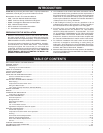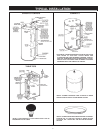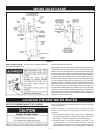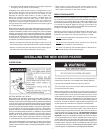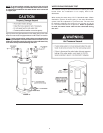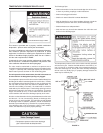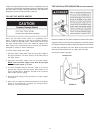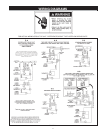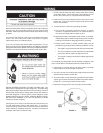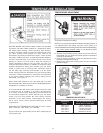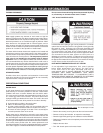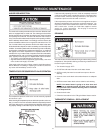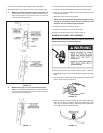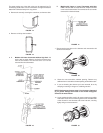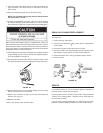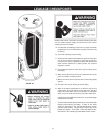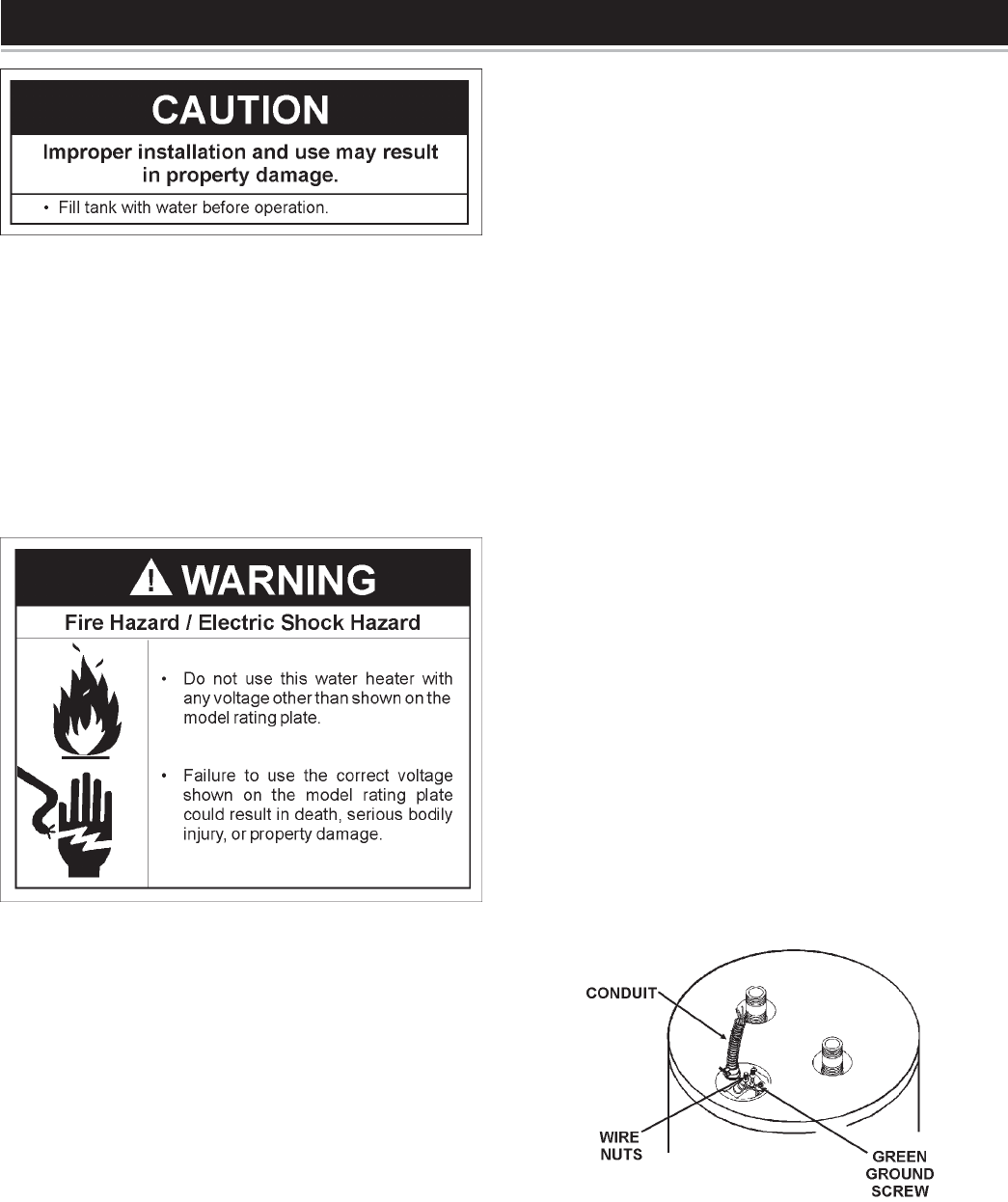
12
WIRING
Never use water heater unless it is completely full of water. To prevent
damage to the tank and heating element, the tank must be filled
with water. Water must flow from the hot water faucet before turning
on power.
You must provide all wiring of the proper size outside of the water
heater. You must obey local codes and electric company
requirements when you install this wiring.
If you are not familiar with electric codes and practices, or if you
have any doubt, even the slightest doubt, in your ability to connect the
wiring to this water heater, obtain the service of a competent electrician.
Contact a local electrical contractor and/or the local electric utility.
WATER HEATERS EQUIPPED FOR ONE VOLTAGE ONLY: This
water heater is equipped for one type voltage only. Check the rating
plate near the bottom access panel for the correct voltage. DO NOT
use this water heater with any voltage other than the one shown on
the model rating plate. Failure to use the correct voltage can cause
problems which can result in DEATH, SERIOUS BODILY INJURY,
OR PROPERTY DAMAGE. If you have any questions or doubts
consult your electric company.
If wiring from your fuse box or circuit breaker box was aluminum for
your old water heater, replace it with copper wire. If you wish to
reuse the existing aluminum wire, have the connection at the water
heater made by a competent electrician. Contact a local electrical
contractor and/or the local electric utility.
1. Provide a way to easily shut off the electric power when working
on the water heater. This could be with a circuit breaker or fuse
block in the entrance box or a separate disconnect switch.
2. Install and connect a circuit directly from the main fuse or circuit
breaker box. This circuit must be the right size and have its own
fuse or circuit breaker.
3. If metal conduit is used for the grounding conductor:
A. The grounding electrode conductor shall be of copper,
aluminum, or copperclad aluminum. The material shall be of
one continuous length without a splice or joint.
B. Rigid metal conduit, intermediate metal conduit, or electrical,
metallic tubing may be used for the grounding means if conduit
or tubing is terminated in fittings approved for grounding.
C. Flexible metal conduit or flexible metallic tubing shall be
permitted for grounding if all the following conditions are met:
• The length in any ground return path does not exceed 6 feet.
• The circuit conductors contained therein are protected by
overcurrent devices rated at 20 amperes or less.
• The conduit or tubing is terminated in fittings approved for
grounding.
For complete grounding details and all allowable exceptions, refer
to the current edition of the National Electrical Code NFPA 70.
4. A standard 1/2” conduit opening has been made in the water
heater junction box for the conduit connections.
5. Use wire nuts and connect the power supply wiring to the wires
inside the water heater’s junction box.
6. The water heater must be electrically “grounded” by the installer.
A green ground screw has been provided on the water heater’s
junction box. Connect ground wire to this location.
7. Replace the wiring junction cover using the screw provided.
FIGURE 7.



